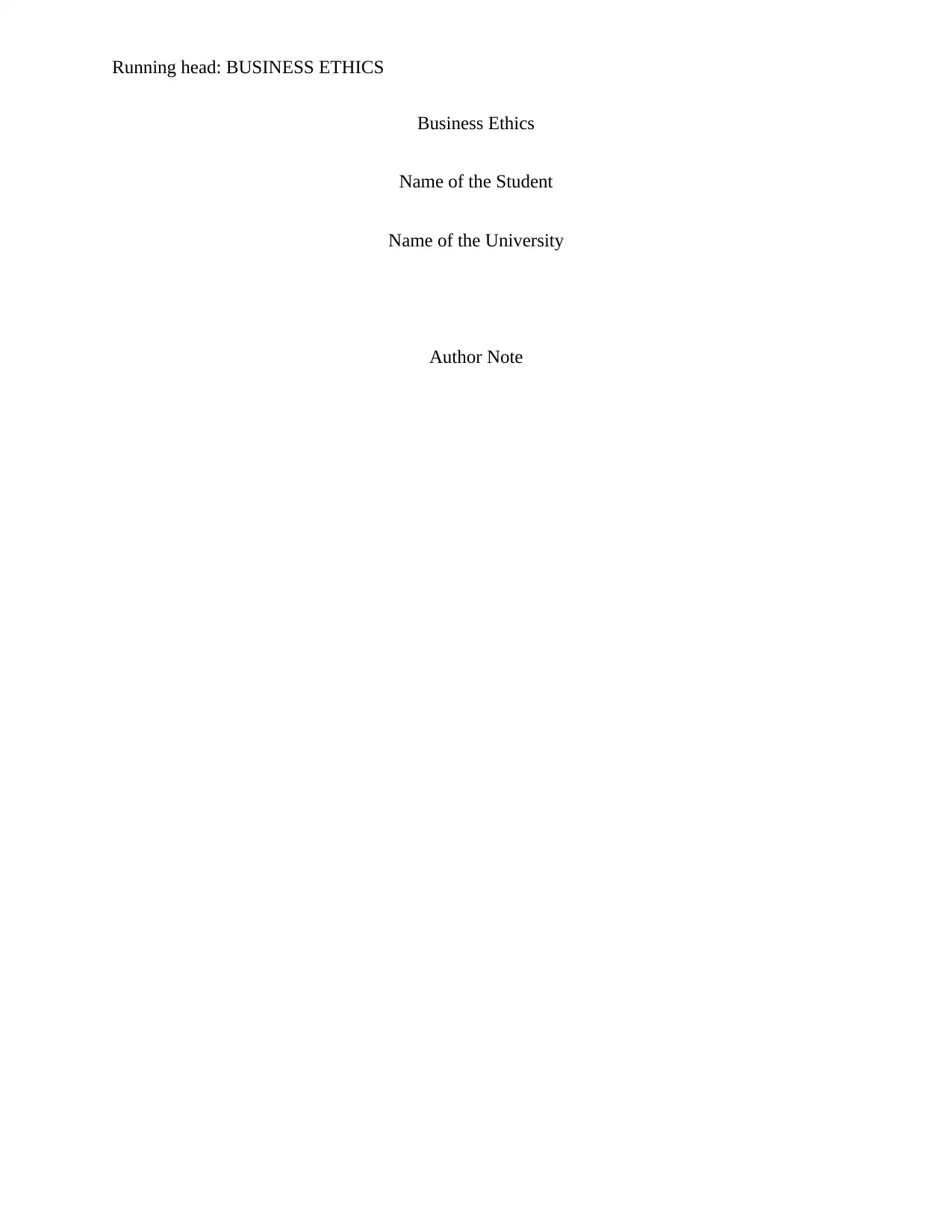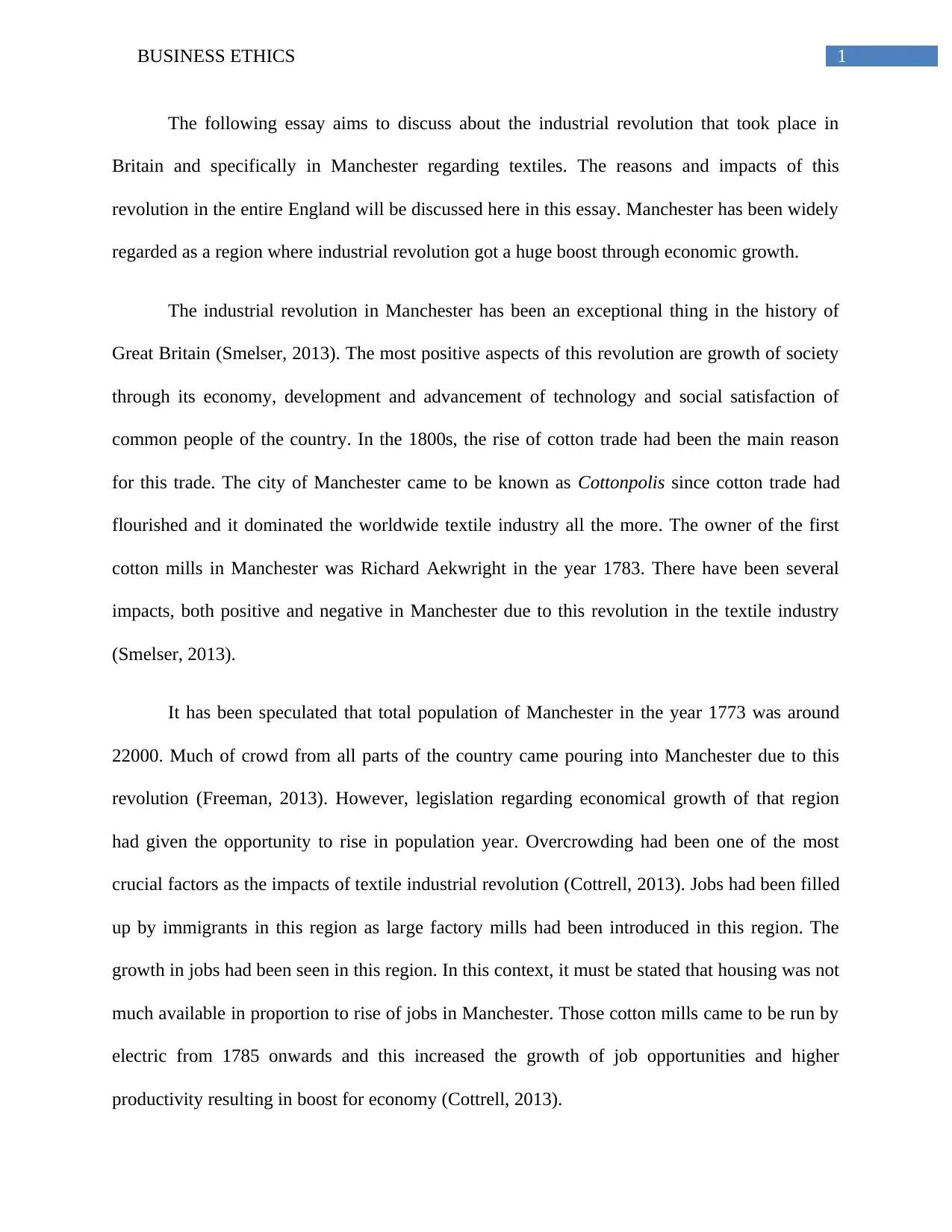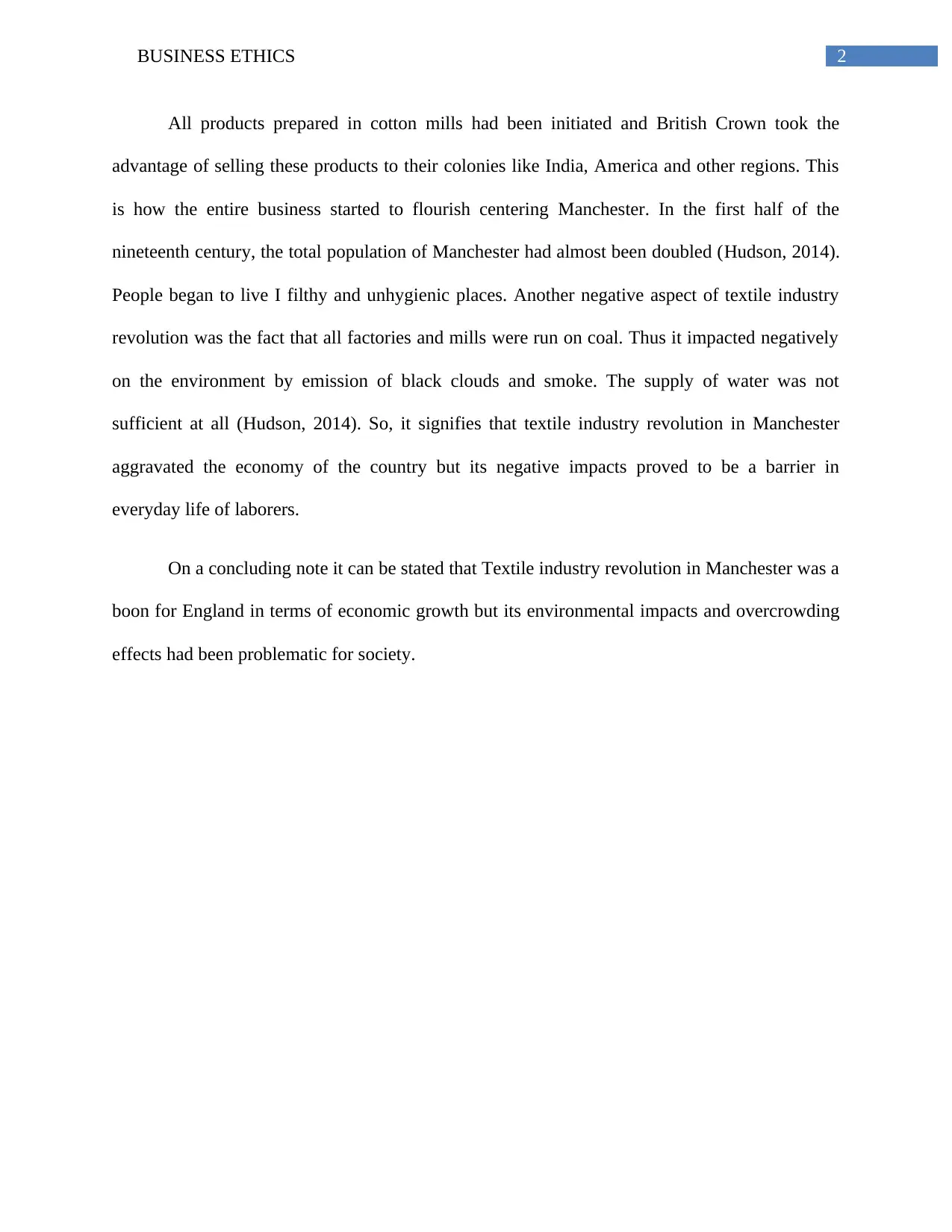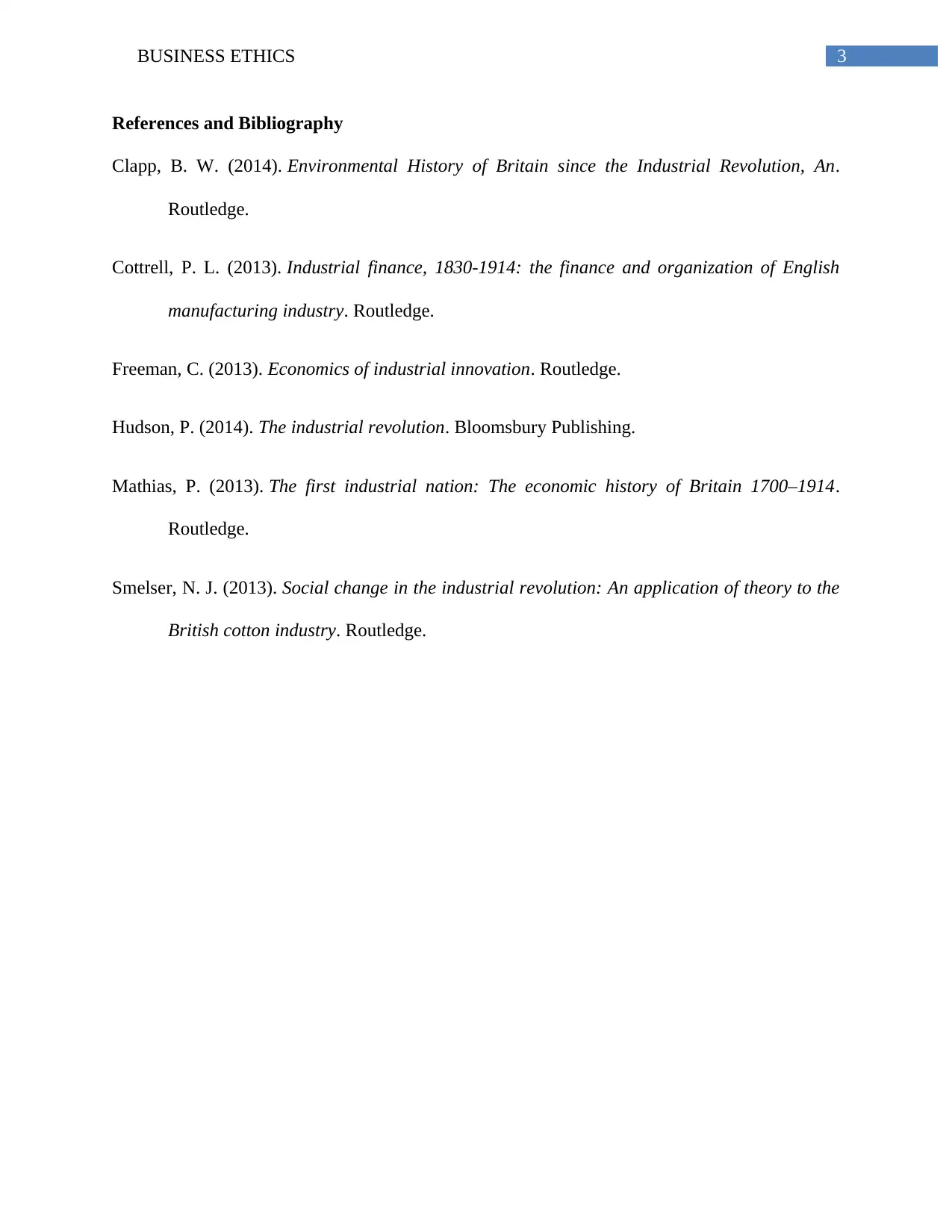Business Ethics: Economic and Social Impacts of Industrial Revolution
VerifiedAdded on 2023/04/08
|4
|616
|321
Essay
AI Summary
This essay examines the Industrial Revolution in Manchester, particularly its impact on the textile industry. Manchester's rise as "Cottonpolis" due to the flourishing cotton trade is discussed, highlighting the contributions of figures like Richard Aekwright. The essay details both positive and negative consequences, including population growth, job creation, and economic advancement, alongside overcrowding, poor living conditions, and environmental pollution from coal-powered factories. The analysis concludes that while the Industrial Revolution boosted England's economy, its social and environmental costs posed significant challenges to the well-being of laborers and the overall quality of life in Manchester.
1 out of 4










![[object Object]](/_next/static/media/star-bottom.7253800d.svg)